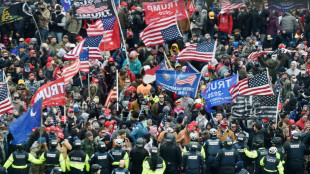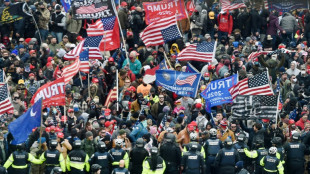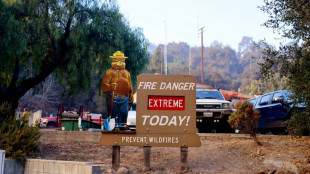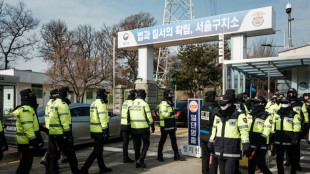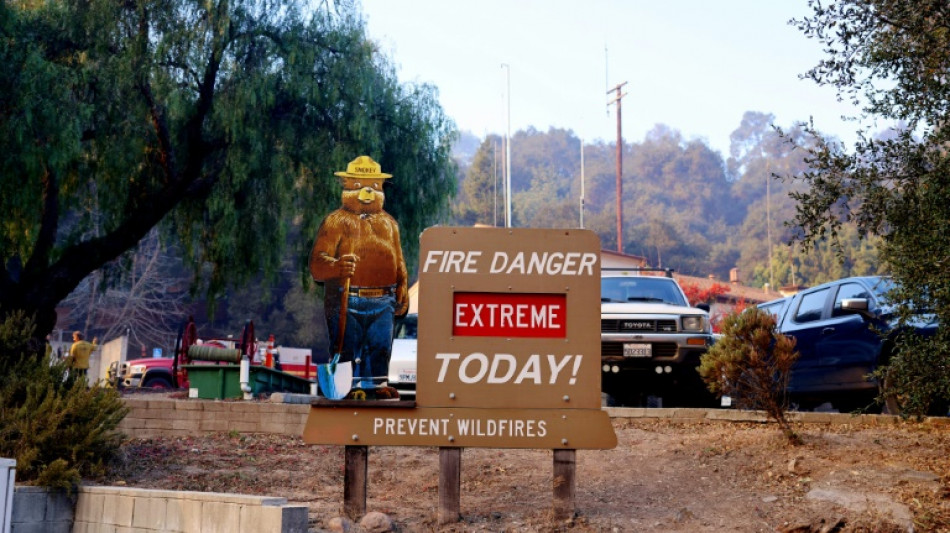

'Extremely critical' risk as winds whip fire-weary Los Angeles
Fire-weary southern California was buffetted Monday by dangerous winds, with forecasters warning of an "extremely critical" risk in a region already staggering from the devastation of horrifying blazes.
Firefighters continued to make progress snuffing out fires that ravaged 40,000 acres (16,000 hectares) in the Los Angeles area, after eruping on January 7 and killing at least 27 people.
But a return of the hurricane-force winds responsible for spreading those initial fires threatened more danger.
Winds gusting up to 88 miles (142 kilometers) an hour have been recorded in some spots, where forecasters said they could combine with exceedingly dry conditions to create the potential for a fast-spreading fire.
"We're expecting this to continue to create extremely critical fire weather conditions across the region," Ariel Cohen of the National Weather Service (NWS) told AFP.
"Any fires that form could grow explosively. And so this is a particularly dangerous situation."
Officials said they had pre-deployed engines and firefighters to areas at risk, after facing criticism that they were unprepared earlier this month.
"I believe that we will be very, very prepared for what the worst possible case scenario (could be) over the next couple of days, and then hopefully we don't get there at all," Los Angeles Mayor Karen Bass told reporters.
The largest conflagration, the Palisades Fire, was 59 percent contained by Monday, and the area affected by evacuation orders has now shrunk to effectively match the fire's footprint.
The Eaton Fire, which wrecked a large part of the Altadena area, was 87 percent surrounded.
- No 'magical spigot' -
As Los Angeles grapples withe the scale of the devastation, political bickering has intensified.
Donald Trump, who was sworn in as US president on Monday, has said he will be visiting the fire-ravaged areas at the end of the week.
That trip could include an awkward encounter with California Governor Gavin Newsom, who has been the target of Trump's barbs over his handling of the disaster.
He has falsely claimed that Newsom had blocked the diversion of "excess rain and snow melt from the North."
In reality, Los Angeles's water supplies are mainly fed via aqueducts and canals originating from entirely separate river basins further east.
Newsom -- a longtime Trump foe, who some believe may have White House ambitions of his own -- told US media over the weekend that sniping was detrimental to recovery efforts.
"What's not helpful or beneficial... is these wild-eyed fantasies... that somehow there's a magical spigot in northern California that just can be turned on, all of a sudden there will be rain or water flowing everywhere," said Newsom.
The governor blamed Elon Musk -- the Tesla and SpaceX owner poised to play a key role advising the incoming administration -- "and others" for "hurricane-force winds of mis- and dis-information that can divide a country."
Southern California has had no significant rain for around eight months, even though it is well into what is usually the rainy season.
Officials have cautioned that if that rain does materialize, it could create dangerous debris flows in the disaster zone, and spark mudflows and hill collapses.
V.Agnellini--IM
